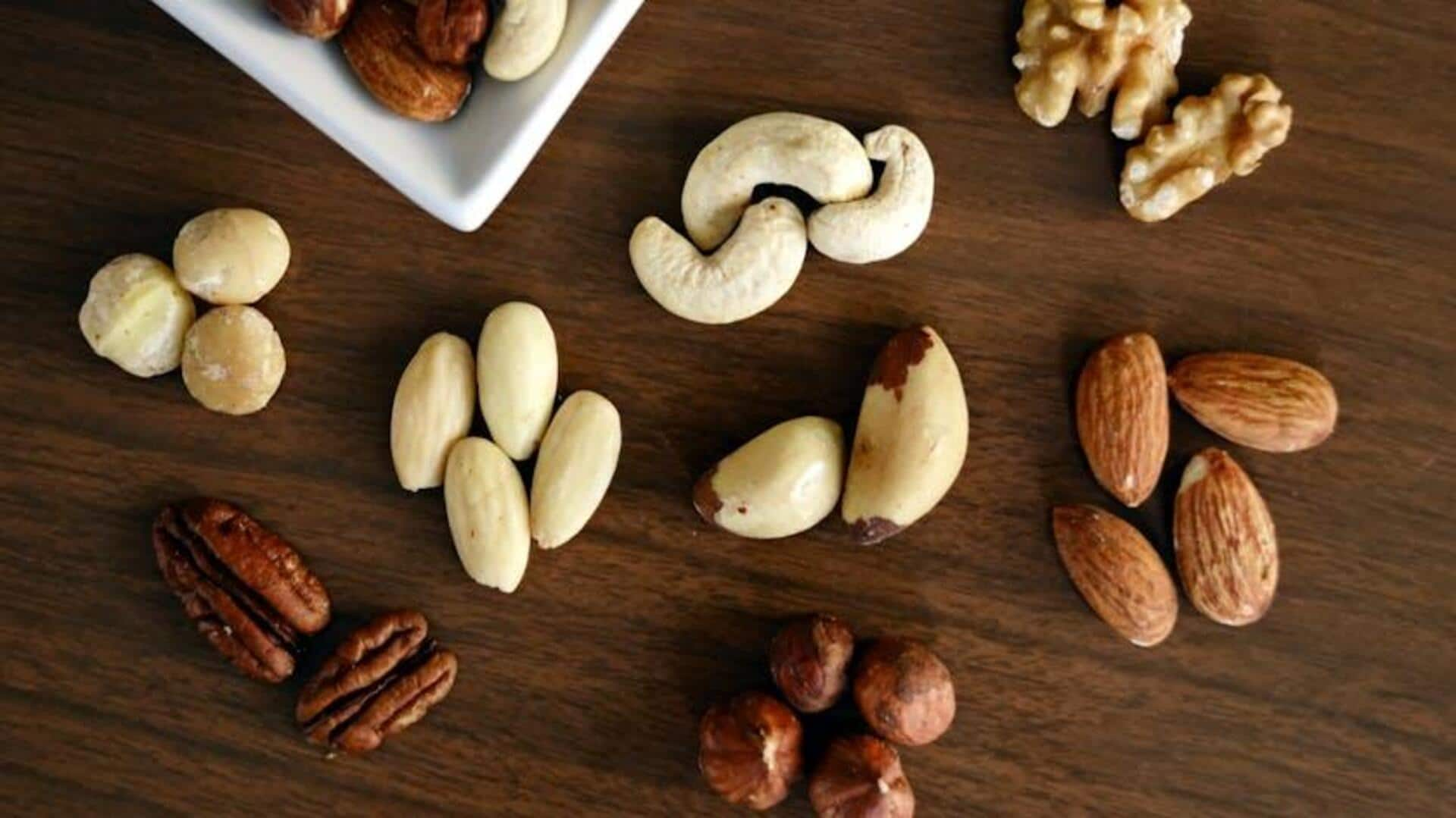
Can nuts help you lose weight? Here's the science
What's the story
Many people think eating nuts can make you gain weight as they're high on fat. But that's a misconception.
Nuts are nutrient-dense foods which give you healthy fats, protein, and fiber.
All of these can actually help you in managing weight by making you feel full and lowering your overall calorie intake.
Understanding nuts' role in a balanced diet is key to busting myths about their effect on body-weight.
Nutrient value
Nutrient density of nuts
Nuts are loaded with essential nutrients, including vitamins, minerals, and antioxidants.
They are rich in healthy fats such as monounsaturated and polyunsaturated fats, which promote heart health.
Nuts are also a good source of protein and fiber, which keep you full for longer and may prevent you from reaching for less healthy snacks during the day.
Serving size
Portion control matters
While nuts are extremely nutritious, portion control is the key to avoiding excess calorie intake.
A small handful of nuts can be satisfying without adding too many calories to your diet.
So, be mindful of serving sizes. Typically, 28 grams or one ounce per serving is recommended for most types of nuts.
Metabolic boost
Impact on metabolism
Eating nuts can positively affect your metabolism due to the protein and healthy fats they contain.
These nutrients require more energy to digest than carbohydrates or simple sugars, which could increase your metabolic rate a little.
This means that adding moderate amounts of nuts in your diet could help you remain healthy and not gain weight.
Feeling full
Satiety and appetite control
The combo of protein, fat, and fiber present in nuts plays a key role in making you feel full after a meal or snack.
This satiety effect can be helpful in controlling your appetite by curbing hunger pangs in between meals, causing you to eat less calories during the day without feeling deprived or hungry all the time.